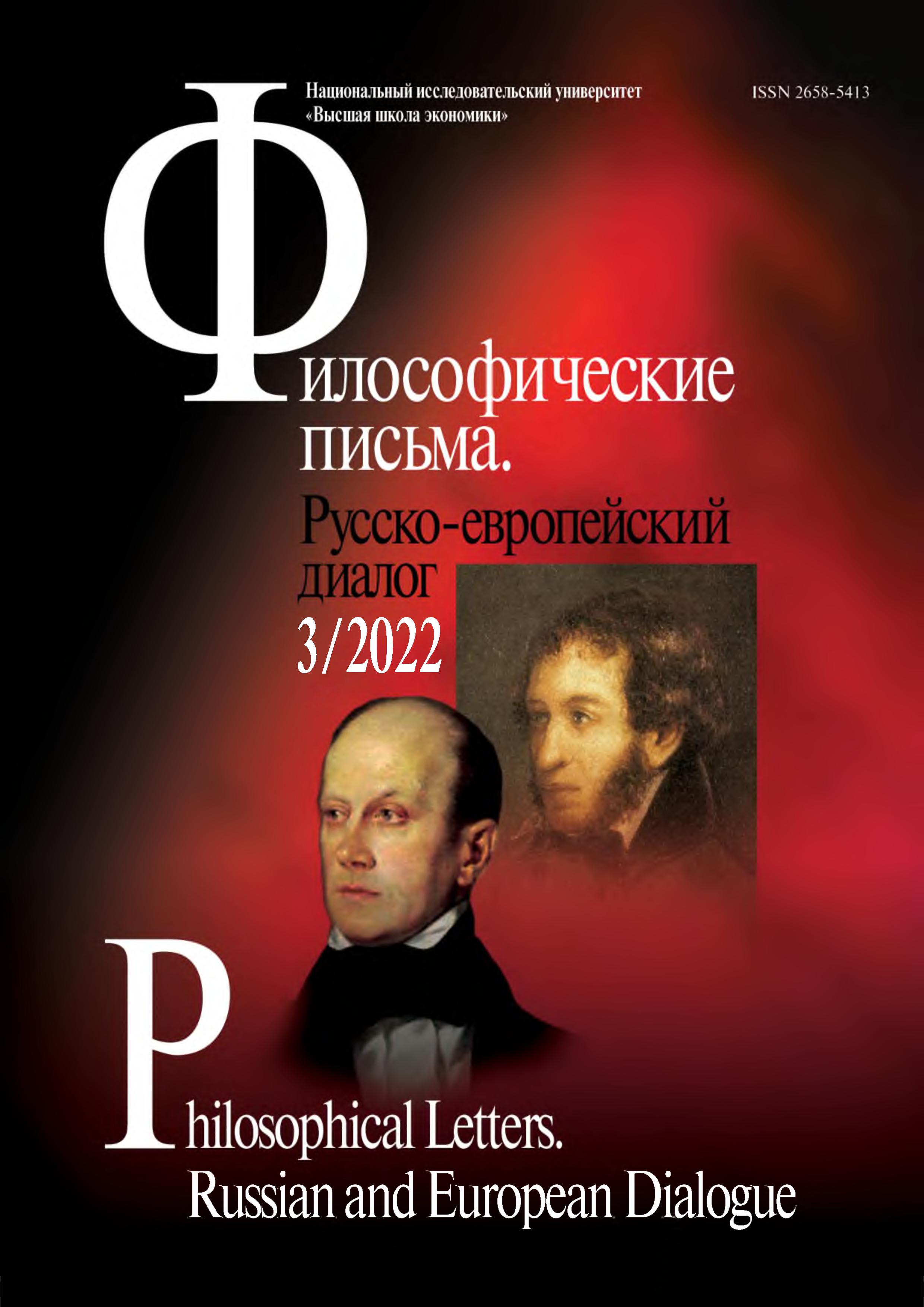Napoleon, Faust, Hamlet, Christ: The Problems of Freedom and “Personality” in Russia in 1838
Abstract
The article deals with the issue of the relationship between freedom and personal development in the view of a number of prominent Russian thinkers of the 19th century. The author shows that German philosophy (I. Kant, G. W. F. Hegel) had a great infl uence on the formation of these ideas. However, along with it, the reception of the Orthodox ascetic tradition associated with the collection “Philokalia” took place. As a result, various concepts of “personality” were formed (this term itself in its modern sense arose precisely in the 1830s among the authors considered in the article), they were refl ected in journalism, literary criticism and philosophical works. The author comes to the conclusion that the formation of ideas about “personality” took place in Russia exactly in the context of the issue of personal freedom. Its development was considered by V. G. Belinsky and M. A. Bakunin as a result of world-historical progress. “Personality” within the framework of such a view was associated with self-consciousness and its exaltation. M. M. Speransky and A. S. Khomyakov saw personal improvement as the focus of human progress. In this case, the “personality” was perceived as a “whole being”, as a person as a whole, and its center was the spiritual sphere. Society was seen as an opportunity for the spiritual improvement of the individual. Two different views of “personality” also determined different ideas about human freedom. First of all, it was seen as either a condition for the development of the individual, or a condition for social progress.

